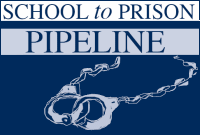NYCLU on Arrests of Pro-Palestine Protestors at NYU
Civil Liberties Union
The New York Civil Liberties Union today called on the school board of the Syracuse City School District to immediately investigate the alleged beating of a 15-year-old Corcoran High School student at the hands of a school resource officer. The NYCLU called on Superintendent Daniel Lowengard and Board President Laurie Menkin to act “quickly and decisively” to “restore confidence to the school system” and address the systemic problems in the relationship between the Syracuse Police Department and the school district.

The New York Civil Liberties Union today called on the school board of the Syracuse City School District to immediately investigate the alleged beating of a 15-year-old Corcoran High School student at the hands of a school resource officer. The NYCLU called on Superintendent Daniel Lowengard and Board President Laurie Menkin to act “quickly and decisively” to “restore confidence to the school system” and address the systemic problems in the relationship between the Syracuse Police Department and the school district.
 |
| > Click here to learn more |
Although the exact series of events that took place on October 30 is in dispute, it has become clear that School Resource Officer Paul Kluge – a uniformed officer of the Syracuse Police Department – used extreme physical force against the 5’2” tall Quanasia Johnson, allegedly causing injuries to her face, head, neck, arms and back. Witnesses say that Kluge repeatedly punched Quanasia in the head and face until she suffered a severe nose bleed. She had a hall pass and was using the bathroom when Kluge ordered everyone out of the restroom. The altercation began shortly after Quanasia exited the restroom and tried to return to class.
“This shockingly violent incident must be a wake-up call to the school board that we have a serious problem in our schools,” said Barrie Gewanter, director of the NYCLU’s Central New York Chapter. “We’ve heard that there is a police brutality problem at Corcoran. This latest situation illustrates the urgent need for accountability and transparency around the police presence in Syracuse schools.”
To protect the safety and well-being of students in all of Syracuse’s public schools, the NYCLU demands that that Syracuse City School District:
“Police officers are trained to deal with the violent and criminal elements of the streets,” said Julius D. Edwards, executive director of the Onondaga County/Syracuse Commission on Human Rights. “These tactics are excessive for everyday school behavior issues and demonstrate a larger systemic issue regarding police and community relations. Student code of conduct issues should be dealt with by teachers, counselors and administrators.”
The increased police presence in schools nationwide is creating a School to Prison Pipeline in which student behavior that would normally result in a phone call home or a parent-teacher conference instead ends with a criminal arrest. Resource-strapped school districts have all but abandoned the goal of providing a quality education to every student, and are instead using police officers and so-called “zero tolerance” policies to push “problem” students out of mainstream educational settings. As a result, the most neglected and underserved students – youth of color and those with special needs – are being criminalized instead of being educated.
“Overly aggressive police tactics in school disrupts learning,” said Johanna Miller, public policy counsel for the NYCLU. “When police handle school discipline, minor disciplinary infractions that once resulted in a trip to the principal’s often result in a trip to the local precinct. Parents and students in Syracuse need to be a part of a public discussion about what role police officers should play in our schools.”
Currently, the association between the Syracuse Police Department and the Syracuse City School District exists on an unofficial, year-to-year basis. Outside of a few passing mentions in the SCSD Student Handbook and a line item in the police budget, there is no official recognition of police activities in SCSD schools. This unofficial relationship has created systemic problems, most of which are traceable to the lack of clear policy or a legally binding agreement between the two agencies.
“It shouldn’t take something so tragic as what happened to Quanasia for us to deal with this problem,” said Jamie-Lou McKinney, Quanasia’s attorney and law guardian. “Students deserve to feel safe in their schools. We need to use this as an opportunity and deal with this problem before something even worse happens.”